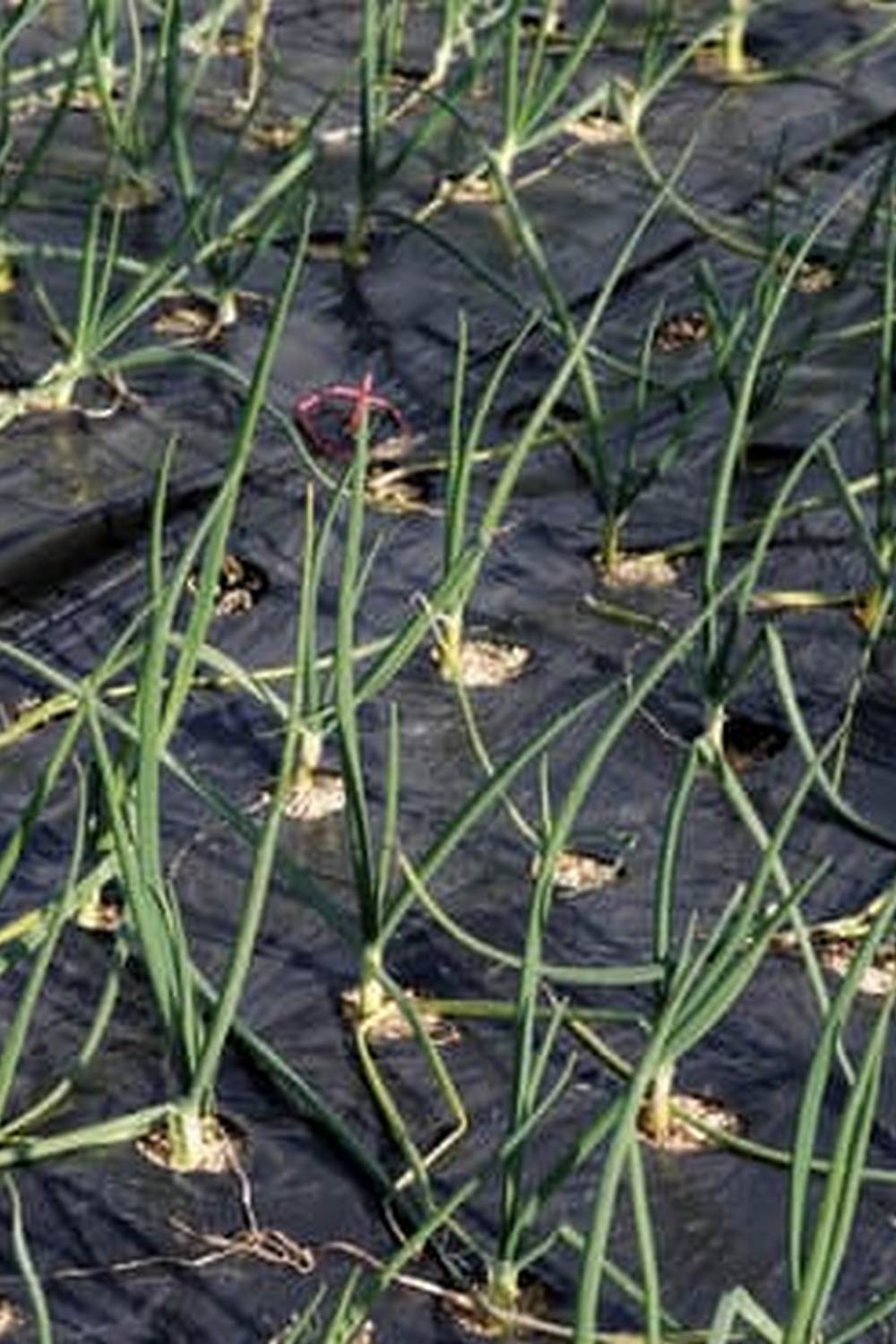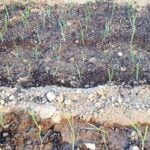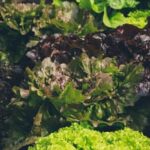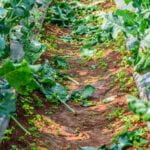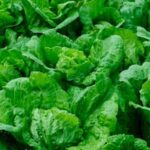Are you looking for the best mulch for vegetable gardens in St. Louis, MO? Choosing the right type of mulch is essential for the health and productivity of your garden. In this article, we will explore the importance of using mulch in vegetable gardens and provide a comprehensive overview of the best options available in St. Louis, MO.
The climate and soil conditions in St. Louis, MO can greatly impact the choice of mulch for your vegetable garden. Understanding these factors is crucial when selecting the most suitable mulch for your garden. We will delve into how these conditions shape the decision-making process and help you make an informed choice.
Whether you are considering organic or synthetic options, it’s important to weigh the pros and cons of each type of mulch. We will compare the benefits and drawbacks of various materials to help you determine which type of mulch is best suited for your specific needs. Stay tuned as we dive into the intricacies of each option to help guide your decision-making process.
Understanding the Climate and Soil Conditions in St Louis, MO
St. Louis, MO experiences a humid subtropical climate with hot summers and cold winters. The region also has a variety of soil types, including clay, loam, and silt. These climatic and soil conditions play a significant role in determining the best mulch for vegetable gardens in the area.
When it comes to choosing the best mulch for vegetable gardens in St. Louis, MO, it is vital to consider the moisture retention capabilities of the mulch. The hot summers in the region can lead to dry soil, so using a mulch that helps retain moisture is crucial for the health of your vegetable garden. Organic mulches such as straw, shredded bark, or compost are excellent choices for retaining moisture and maintaining consistent soil moisture levels.
In addition to moisture retention, St. Louis’s climate also presents challenges such as temperature fluctuations and heavy rainfall at times. As a result, it is essential to select a mulch that can withstand these weather conditions without degrading too quickly or becoming waterlogged. Some synthetic mulch options like landscape fabric or rubber mulch may provide better resistance to extreme weather conditions compared to organic mulches.
- Organic Mulches (e.g. straw, shredded bark, compost)
- Synthetic Mulches (e.g. landscape fabric, rubber mulch)
Ultimately, understanding the specific climate and soil conditions in St. Louis, MO is crucial when deciding on the best mulch for your vegetable garden. By considering factors such as moisture retention, durability in varying weather conditions, and overall effectiveness in promoting plant growth, gardeners can make an informed decision about which type of mulch will work best for their unique gardening needs.
Best Types of Mulch for Vegetable Gardens in St Louis, MO
When it comes to choosing the best mulch for vegetable gardens in St. Louis, MO, there are several options to consider. Whether you prefer organic or synthetic materials, each type of mulch has its own set of benefits and drawbacks that you should be aware of before making a decision.
In this section, we will provide you with a comprehensive overview of the best types of mulch for vegetable gardens in St. Louis, MO, so you can make an informed choice for your garden.
Organic Mulch Options
One of the most popular organic mulch options for vegetable gardens in St. Louis, MO is straw. Straw mulch helps to retain moisture in the soil, suppresses weed growth, and adds valuable organic matter as it breaks down over time. Another option is wood chips or bark, which also provides excellent moisture retention and weed suppression while adding nutrients to the soil as it decomposes.
Synthetic Mulch Options
For those looking for a low-maintenance option, synthetic mulches such as plastic or landscape fabric may be the best choice for their vegetable garden in St. Louis, MO. Plastic mulches are effective at retaining soil moisture and controlling weed growth, while landscape fabric allows water and air to penetrate the soil while still preventing weed growth. However, some gardeners may prefer organic options due to environmental concerns and potential harm from chemicals leaching into the soil.
It’s important to carefully consider your specific needs and preferences when choosing the best mulch for your vegetable garden in St. Louis, MO. By understanding the pros and cons of each type of mulch material, you can make an informed decision that will contribute to the overall success of your garden. Regardless of whether you choose organic or synthetic options, selecting the right mulch is essential for promoting healthy plant growth and maximizing yields in your vegetable garden.
Pros and Cons of Each Type of Mulch
When it comes to choosing the best mulch for vegetable gardens in St. Louis, MO, it’s important to consider the pros and cons of each type of mulch material. The right choice can have a significant impact on the health and productivity of your garden. In this section, we will compare the benefits and drawbacks of various organic and synthetic mulch options to help you make an informed decision.
Organic Mulch
Organic mulches, such as straw, compost, and wood chips, offer several benefits for vegetable gardens. They can improve soil fertility, retain moisture, suppress weeds, and regulate soil temperature. Additionally, organic mulches break down over time and contribute to the overall health of the soil by adding essential nutrients.
However, organic mulches also have some drawbacks. They may attract pests or harbor diseases if not properly managed. Some organic mulches can also be prone to mold or fungus growth in consistently damp climates like St. Louis, MO.
Synthetic Mulch
Synthetic mulches like plastic or landscape fabric offer their own set of advantages for vegetable gardens. They are effective at preventing weed growth, regulating soil temperature, conserving moisture, and protecting fruits and vegetables from direct contact with the soil.
On the other hand, synthetic mulches do not contribute to soil health as they don’t break down over time like organic materials do. They also require careful installation to ensure proper ventilation and avoid trapping excessive heat or moisture in the soil.
By understanding these pros and cons of different types of mulch materials for vegetable gardens in St. Louis, MO, you can make an informed decision that aligns with your garden’s specific needs and conditions. Remember to consider factors such as climate, soil composition, maintenance requirements, and long-term effects on soil health when selecting the best mulch for your vegetable garden.
Tips for Selecting the Right Mulch for Your Vegetable Garden in St Louis, MO
When selecting the best mulch for vegetable gardens in St. Louis, MO, there are several factors to consider to ensure that you are making the right decision for your garden. One important factor to consider is the climate and soil conditions in St. Louis.
The city experiences hot and humid summers, as well as cold winters, which can affect the choice of mulch for vegetable gardens. Additionally, the type of soil in St. Louis can also play a role in determining the best mulch for your garden.
Another important consideration when choosing mulch for your vegetable garden in St. Louis is the type of plants you are growing. Different types of vegetables may have varying requirements when it comes to mulch, so it’s essential to take into account the specific needs of your plants when making a decision.
In addition to considering climate, soil conditions, and plant types, it’s also crucial to think about the availability and cost of different types of mulch in St. Louis. Some organic mulches may be readily available in this area, while others may need to be sourced from further away, impacting their cost and availability.
Synthetic options may also vary based on local suppliers and pricing. Ultimately, considering these practical factors can help you make an informed decision when selecting the best mulch for your vegetable garden in St. Louis, MO-ensuring that your plants thrive throughout the growing season.
How to Properly Apply and Maintain Mulch in Your Vegetable Garden
When it comes to maintaining a healthy and thriving vegetable garden in St. Louis, MO, choosing the best mulch is just the first step. Proper application and maintenance of the mulch are equally important in ensuring the effectiveness of this gardening technique.
First and foremost, it’s crucial to apply the mulch at the right time. In St. Louis, MO, where summers can be hot and dry, it’s best to apply mulch in late spring or early summer to help retain moisture in the soil and protect plants from extreme temperatures. Additionally, make sure to properly prepare the soil before applying mulch by removing any weeds and debris.
Once the mulch is applied, proper maintenance is key to its effectiveness. Regularly inspect the mulch for any signs of compaction, which can prevent water from reaching the soil beneath. Fluffing or loosening the mulch can help prevent this issue, as well as promote air circulation and better water absorption. It’s also important to replenish the mulch as needed, especially after heavy rainfall or as it naturally decomposes over time.
In addition to these best practices for applying and maintaining mulch in your vegetable garden, it’s important to choose the right type of mulch for your specific plants and soil conditions in St. Louis, MO. By considering factors such as moisture retention, weed suppression, and insulation properties of different types of organic or synthetic mulches, you can ensure that your vegetable garden thrives with the best mulch for St. Louis growing conditions.
| Best Practices for Applying Mulch | Importance |
|---|---|
| Apply at right time | Retains moisture & protects plants |
| Properly prepare soil | Remove weeds & debris |
| Maintaining Mulch | Inspect for compaction & replenish as needed |
Case Studies and Success Stories
One prime example of a successful vegetable garden in St. Louis, MO that has thrived with the use of the best mulch is the Smith Family Garden. The Smiths have been avid gardeners for over 10 years and have experimented with various types of mulch to determine what works best for their vegetable garden.
After careful consideration, they found that using straw as mulch yielded the best results for their tomatoes, peppers, and cucumbers. The straw helped retain moisture in the soil, controlled weeds, and regulated soil temperature, ultimately leading to an abundant harvest.
Another noteworthy case study is the Johnson Community Garden, where a group of dedicated individuals came together to grow fresh produce for their local community. They decided to use composted leaves as mulch for their vegetable garden and saw outstanding results. The composted leaves enriched the soil with essential nutrients and improved its structure, creating an ideal environment for growing a variety of vegetables such as lettuce, spinach, and carrots.
In addition to these success stories, many other vegetable gardens in St. Louis, MO have benefited from using the best mulch for their specific needs. Whether it’s organic options like wood chips or synthetic materials such as landscape fabric, the key to thriving vegetable gardens lies in selecting the right type of mulch based on individual requirements and preferences.
These real-life examples serve as inspiration for aspiring gardeners to explore different mulch options and find what works best for their own vegetable gardens in St. Louis, MO.
- The Smith Family Garden successfully used straw mulch
- The Johnson Community Garden saw great results with composted leaves
- Many other vegetable gardens in St. Louis utilize various types of organic and synthetic mulch
Conclusion
In conclusion, selecting the best mulch for vegetable gardens in St. Louis, MO is essential for promoting healthy plant growth and increasing crop yields. Considering the unique climate and soil conditions of the region, it is crucial to choose a mulch that can effectively retain moisture, control weed growth, and regulate soil temperature.
Organic options such as straw, wood chips, and compost are popular choices due to their ability to improve soil structure and provide essential nutrients to plants. On the other hand, synthetic mulches like plastic sheeting and landscape fabric offer excellent weed suppression and moisture conservation.
After weighing the pros and cons of each type of mulch, it is clear that there is no one-size-fits-all solution. Factors such as cost, availability, and personal gardening preferences must be taken into account when making a decision.
However, regardless of the type of mulch chosen, proper application and maintenance are crucial for ensuring its effectiveness in a vegetable garden. By following best practices such as applying an adequate layer of mulch, regularly checking for weed intrusion, and replenishing mulch as needed, gardeners can maximize the benefits of this landscaping material.
Frequently Asked Questions
What Kind of Mulch Should I Use for My Vegetable Garden?
The best mulch for a vegetable garden is organic mulch, such as straw, shredded leaves, or compost. These types of mulch can help retain moisture, suppress weeds, and improve soil health for your vegetables.
What Is the Best Mulch for Missouri?
In Missouri, the best mulch to use would be something that can withstand the region’s hot summers and cold winters. Cedar or cypress mulch are good choices for Missouri, as they can resist decay and maintain their appearance in various weather conditions.
What Mulch to Use Around Tomatoes?
When it comes to tomatoes, organic mulches like straw or grass clippings are ideal. These types of mulch can help regulate soil temperature and moisture, while also preventing weeds from growing around the tomato plants. This can lead to healthier tomato plants and better yields in the long run.

If you’re looking to get into vegetable gardening, or are just looking for some tips on how to make your current garden better, then you’ve come to the right place! My name is Ethel and I have been gardening for years. In this blog, I’m going to share with you some of my best tips on how to create a successful vegetable garden.

